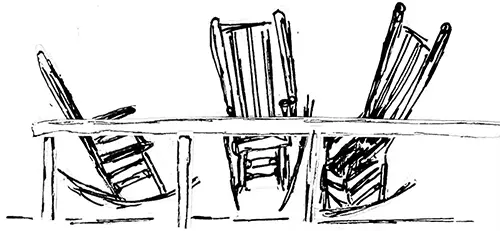Writers & Poets 233
A Call to Arms
JEFFERSON COUNTY, KANSAS. The review below was first published in the Intercollegiate Review in the fall of 2006. Look Homeward, America was my first introduction to the work of the…
I Want to Be a Consumer
A bit of doggerel from Punch Magazine (25 April 1934). I Want to Be a Consumer “And what do you mean to be?” The kind old Bishop said As he…
Price, Liberty and the Pursuit of Happiness
JEFFERSON COUNTY, KANSAS.* In 1947, two titans of 20th-century economic theory, Ludwig von Mises and Wilhelm Röpke, met in Röpke's home of Geneva, Switzerland. During the war, the Genevan fathers coped…
The Thee-ater of the Bozarts
Louisville, Ky. “Rural dwellers may have boundless tolerance for exaltations of the wonders and mysteries of the natural world, but the urban spirit begins to rebel. By the time this…
The Dismal Science vs. Community
RINGOES, NJ. In 1944 two very different but related books were published. The first was F.A. Hayek’s The Road to Serfdom. In a world that seemed to be succumbing…
Life Amid the Suicide Machines
JEFFERSON COUNTY, KANSAS. In small town America, business owners get to sponsor everything from the high school wrestling team to the "pride committee" chili cook off. One of the events…
Does the Way of Improvement Lead Home?
First, let me extend my greetings to the readers of the Front Porch Republic. I have been following conversations here at FPR since it launched earlier this year and find…
I Did Taste!
Under consideration: Michael Pollan, The Omnivor's Dilemma: A Natural History of Four Meals, Penguin (2006), 464 pages; and In Defense of Food: An Eater's Manifesto, Penguin (2008), 256 pages.* JEFFERSON…
Reasoning about Stories
Devon, PA. Here is something for you that no one will dispute: all complaints about modernity, including those that fit under the rubric of "conservative," are arguments about stories. …
The Rediscovery of Agriculture?
RINGOES, NJ. Recently, a friend and I visited Polyface Farm outside Staunton, Virginia. Polyface is owned and operated by Joel Salatin, whose parents started farming these verdant five-hundred acres in…
Mr. Herbert’s Sunday Morning Service
Devon, PA. Most people, agrarian or otherwise, do not read poetry anymore. Ours is not merely a forgetful culture, but one that has long since ceased to approve of memory…
It was 20 Years Ago Today…Edward Abbey Lives!
BURNED-OVER DISTRICT, NY--Edward Abbey died twenty years ago today. A product of the perfectly named Home, Pennsylvania, son of the conjugation of a Woman’s Christian Temperance Unionist and a Wobbly…
Douthat to the Times
Phoenix, Arizona. Catapulted by his inclusion on the exclusive FPR blogroll, Ross Douthat has been tabbed as a new opinion columnist for the New York Times. This is good news.…
A Note on Immigration
South Bend, IN. Back here, in the city where the St. Joseph River takes her perpetual turn for the worse, my family and I have come to pay our last…
Time-Travel Economics with Jonathan Swift
Rock Island, Illlinois. It’s a little-known fact that many of our finest writers owned time machines and paid frequent visits to the future. Furious John Ruskin (1819-1900), for example, that…
Last Will and Sacrament
PHOENIX, ARIZONA. I don’t think that many reviews have yet appeared, but John Lukacs has just published another memoir, titled Last Rites. Patrick Allitt has an appreciative, but not uncritical,…
Kindred Spirits
BURNED-OVER DISTRICT, NEW YORK. March came in like a frigid lamb, and even though the temperature never did climb out of the teens the snowless patch in our backyard was…








